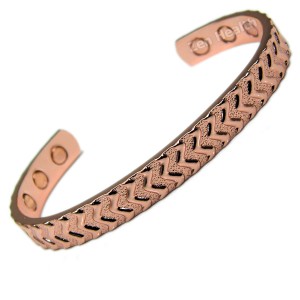
Rheumatic conditions refer to autoimmune and inflammatory diseases that affect the immune system, causing it to work against one’s own joints, muscles, bones, and organs.
Rheumatic conditions consist of autoimmune conditions that act against a patient’s internal defence system, and cause the body to produce antibodies that act against and damage healthy cells and tissues.
Rheumatic conditions affect a person’s joints, muscles, bones and internal organs, causing great pain, inflammation, and even resulting in severe disabilities. Rheumatic conditions could also lead to death, in extreme cases.
Let’s discuss the specific instances of Rheumatic Conditions and how they hurt us.
How Rheumatic Conditions Affect the Heart
Rheumatic conditions cause chronic inflammation that increases the risk of suffering from cardiovascular disease. Patients suffering from a condition called rheumatoid arthritis are at a far a greater risk of suffering from cardiovascular disease than a normal person. Rheumatic conditions cause inflammation of the lining around the heart, which may lead to heart failure.
How Rheumatic Conditions Affect the Eyes
The Rheumatic condition that affects the eyes is called Sjögren’s syndrome. It makes the eyes dry, irritated, inflamed and could lead to severe complications which may even lead to a complete loss of vision.
How Rheumatic Conditions Affect the Lungs
Rheumatic Conditions such as Scleroderma may affect the lungs, leading to complications that affect the lung tissue. This could lead to what is called pulmonary fibrosis, causing a a scarring of the lungs, which sometimes results in a death.
How Rheumatic Conditions Affect the Nervous system
Rheumatic Arthritis is a common condition that causes deformity of the joints. This may result in compression of the nerves, which may lead to strokes, dame to the nerve fiber and other serious consequences.
How Rheumatic Conditions Affect the Blood
Rheumatic conditions such as lupus, Rheumatic Arthritis and vasculitis cause anemia, which results in severe exhaustion.
How Rheumatic Conditions Affect the Vascular system
Rheumatic conditions such as vasculitis, scleroderma, Rheumatic Arthritis and lupus cause what is called the Raynaud’s syndrome – which affects the blood vessels in the toes and fingers and toes that results in excruciatingly painful ulcerations and possibly, gangrene.
How Rheumatic Conditions Affect the Skin
Psoriatic arthritis is a common rheumatic condition found in patients who have a chronic skin condition called psoriasis. Scleroderma is another condition that causes hardening of the skin.
Alternative Therapies for Rheumatic Conditions

There are quite a few excellent alternative therapies for rheumatic conditions that help to relieve the extreme pain and stiffness. These therapies improve the flexibility of the joints and stop the disease from progressing further. Let’s discuss some of these therapies.
Magnetic Therapy
Perhaps the most popular alternative therapy for rheumatic conditions such as Rheumatic Arthritis is Magnetic therapy. Magnets are known to have special properties that are known to alleviate pain in the joints when used as a part of a therapy. Magnetic therapies come in a variety of forms, such as magnetic necklaces, bracelets, pads, inserts and disks.
There has been a lot of research done on the benefits of magnets for people suffering from osteoarthritis, which is a type of Rheumatic Arthritis associated with aging. Magnetic therapy is known to reduce joint pain considerably in people suffering from rheumatic conditions. While scientists and researchers have not been able to prove convincingly the benefits of magnets for alleviating joint pain, there is a plenty of anecdotal evidence to suggest that this is indeed the case.
Topical Creams
Use of topical creams such as menthol, camphor, and eucalyptus oil, works because these creams irritate the nerve endings in the skin and distract the brain. Another topical cream that consists of Methylsalicylate, is said to block the chemicals that cause pain. Topical creams that have Capsaicin are also known to fight pain caused by a rheumatic condition.
Neuromuscular electrical stimulation (or NMES) and Transcutaneous electrical nerve stimulation (or TENS)
NMES works by stimulating muscle tissue to strengthen it. TENS consists of devices that block pain signals by sending small electrical pulses. They are both quite effective as alternative therapies for Rheumatic Conditions.
Acupuncture
Acupuncture is particularly useful in the treatment of knee osteoarthritis.
As Andrew Wong, MD, who is the chief of Rheumatology at UCLA Medical Center, says “acupuncture and acupressure are effective for helping manage the pain of osteoarthritis, but not for inflammatory arthritis like rheumatoid arthritis except as an adjunct.”
Another expert, Calvin Brown, MD, who is a professor of medicine, specializing in Rheumatology at the Northwestern University in Chicago says, “Acupuncture is only just beginning to be looked at scientifically. Some studies have shown that pretend [sham] acupuncture, where they stick needles in random places, seems to work, so it’s hard to distinguish whether it’s acupuncture or a placebo effect.”
Heat and Cold Therapies
Heat and cold therapies are also quite effective, but there is a lot of debate as to which is better, heat, or cold.
As Dr. Brown says, “The truth is we don’t know that one is better than the other. It’s oftentimes just a preference that simply provides a modest degree of comfort to a patient.”
Relaxation Therapy
Meditation is one of the Relaxation therapies used in the treatment of Rheumatic Conditions, and it is known to relieve muscle pain. Dr. Brown says, “Relaxation therapies are beneficial and it’s important to recognize that not only is treating the disease or condition important, but so is helping individuals to cope with this condition. We rarely cure them, so relaxation therapy can be a part of learning to cope.”
Chiropractic Treatment
Chiropractic manipulation, in combination with heat, is known to be quite effective at reducing lower back pain for people suffering from osteoarthritis.
Dr. Wong says, “I think that chiropractic care has a place in overall arthritis care and management, especially treatments that overlap with what physiotherapists do. It tends to help more musculoskeletal pain conditions, and spine related conditions, but is not as beneficial for inflammatory arthritis.”


Be the first to comment